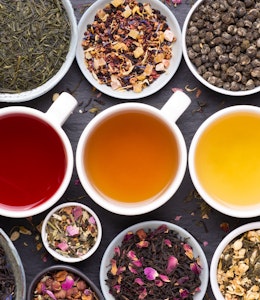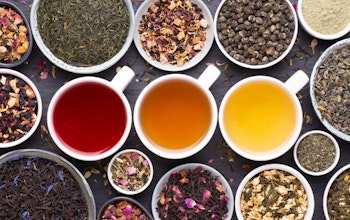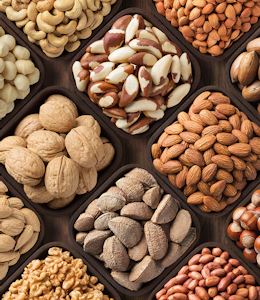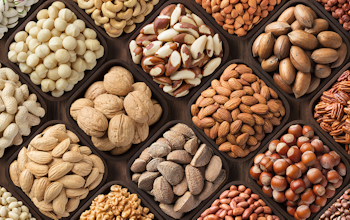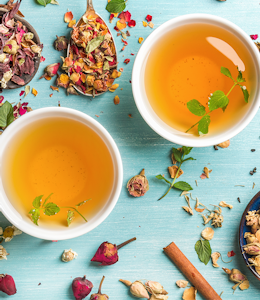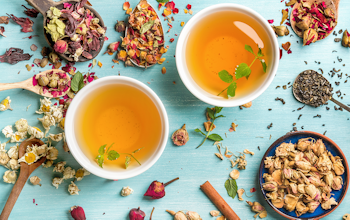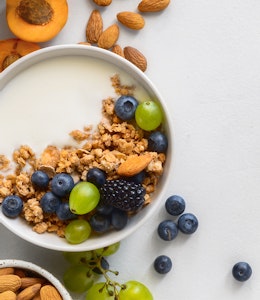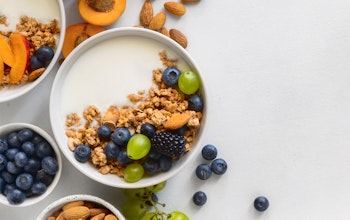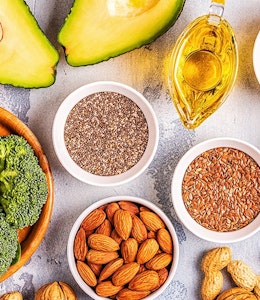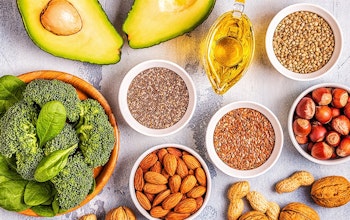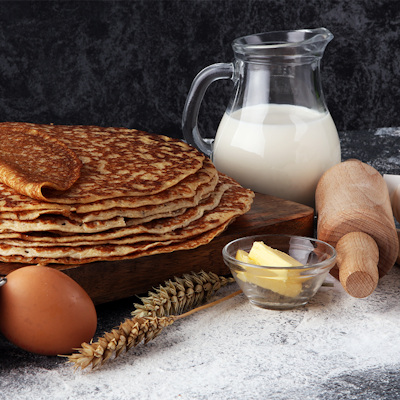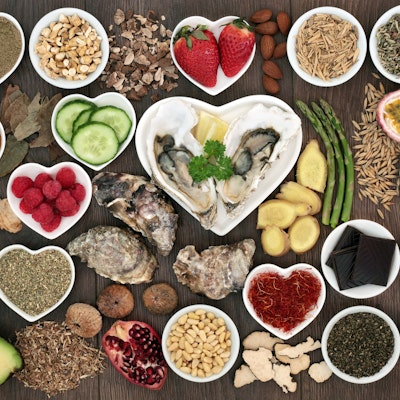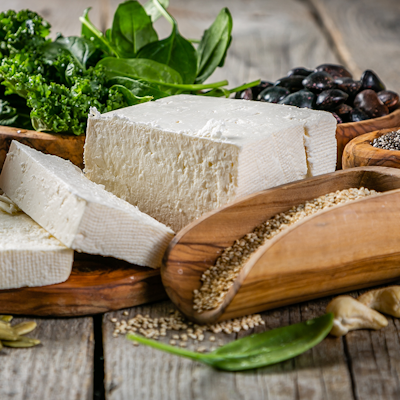What to eat and drink when you have a cold
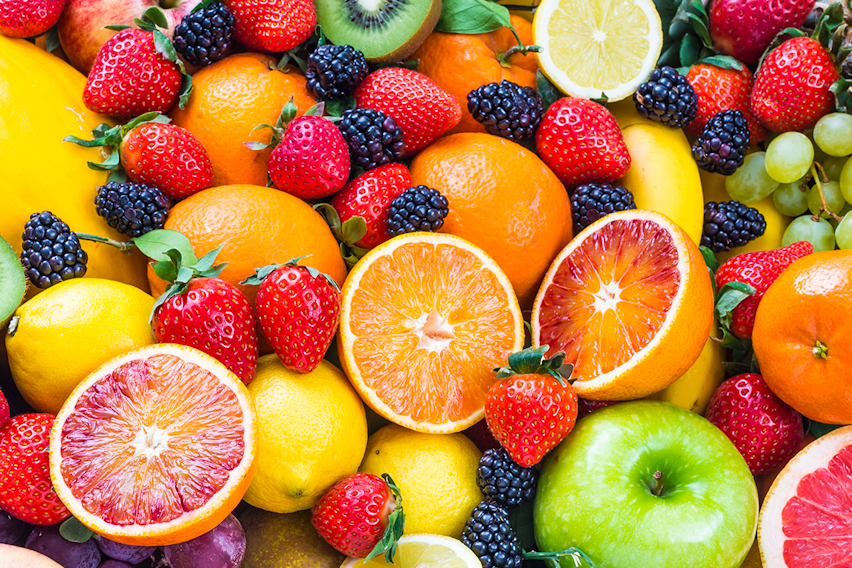
It’s cold season. That’s the bad news. The good news is that we’re rounding up the best food and drinks for colds - what gets rid of them, how to reduce phlegm and what to eat and drink to ease a cough.
They are:
- Oranges and citrus fruits
- Spinach and kale
- Berries
- Honey
- Green tea
- Garlic
- Ginger
- Almonds
- Liquorice tea
- Chilli peppers
Now let’s find out more about them...
Oranges and citrus fruits
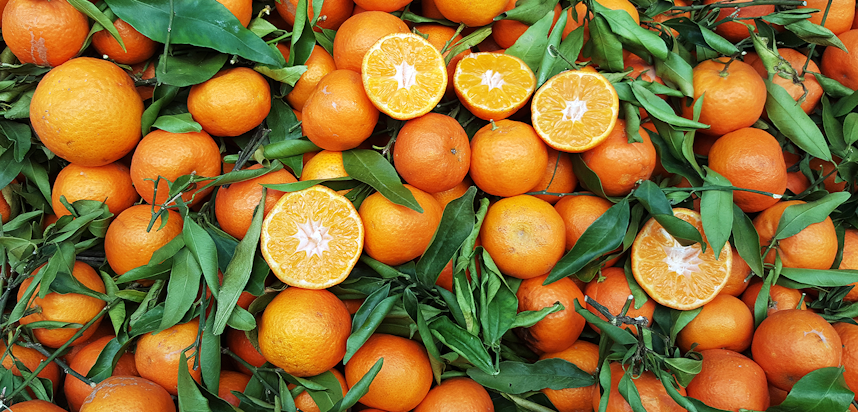
It’s a myth that eating oranges can cure or prevent a cold entirely, but as a vitamin C rich food they can help ease it and encourage the recovery process.
This is because vitamin C helps boost the body’s immune system, instigates tissue repair and boosts the production of collagen - a protein present in healthy skin, muscles and hair, but also organs and intestinal lining.
Whilst many foods are rich in vitamin C, it is a compound that is heat sensitive - so when you cook foods containing it the amount present is reduced. Oranges and other fruits, unlike vegetables, are nearly always eaten raw.
Spinach and kale
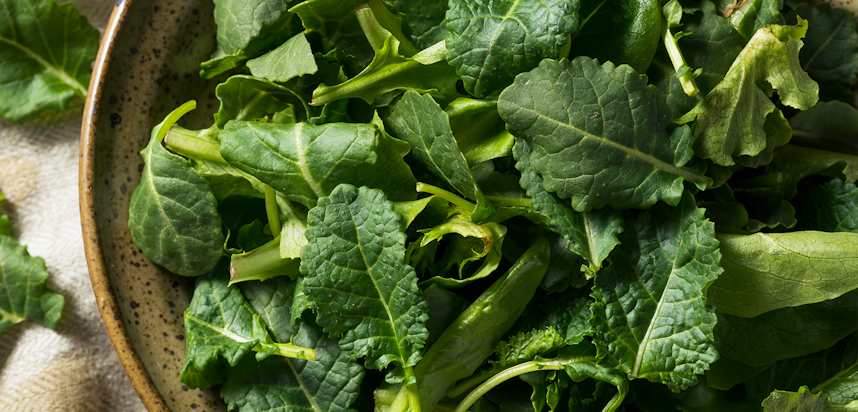
As leafy greens, spinach and kale are both a good source of recovery-boosting vitamin C, but they also contain good amounts of iron and fibre, which helps regulate the digestive system (one of the lesser talked about symptoms that a cold can have).
Beta carotene, which helps the immune system to fight off infection, is also present in spinach and kale, as well as vitamin E - another friend to the immune system, and one with antioxidant properties.
Vitamin C is reduced when foods are cooked, but raw spinach and kale are both great in healthy salads.
Berries
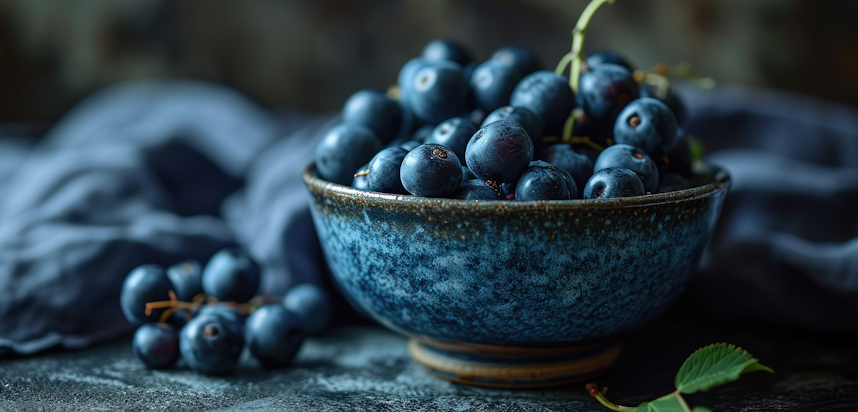
Berries, specifically darker berries such as blueberries, blackcurrants and blackberries are among the best sources of the antiviral agent quercetin - which has several cold-fighting benefits.
Firstly, it reduces uncomfortable lung inflammation, and secondly it inhibits viral infections. Not only this, but it has mucolytic properties that allow it to break down mucus - which the body overproduces when it is suffering from a cold and becomes thicker and more congealed. The breakdown of mucus means it becomes thinner and more free-flowing, reducing congestion and making it easier to breathe.
Honey
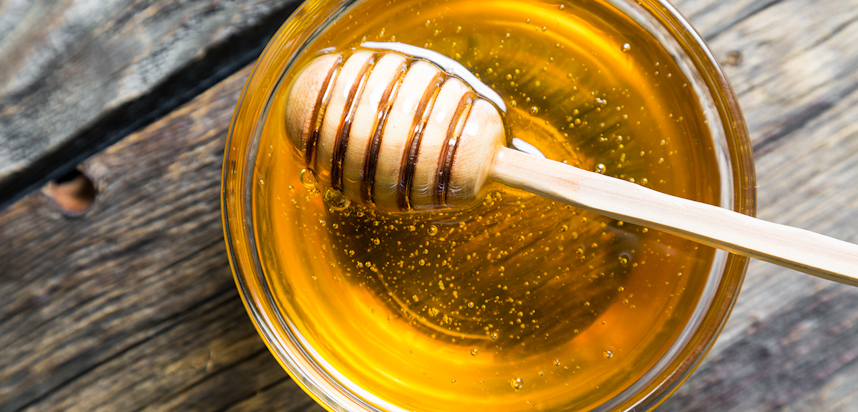
Everyone knows honey is good for a cold - honey and lemon are frequently added to boiling water to create a natural cold remedy, and many over the counter cold medicines come in honey and lemon flavour. One reason for this is that honey helps to soothe a throat that is sore, or swollen from coughing - some people believe it even helps prevent excessive coughing.
Honey is also antibacterial and antimicrobial - as well as being an antioxidant. This means it fights against the cold virus and the symptoms it induces. Manuka honey is also thought to boost immunity overall.
Green tea
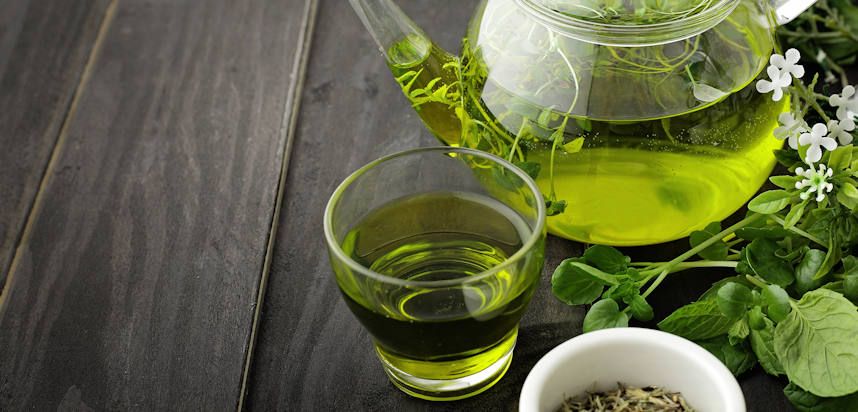
As a free-radical and antioxidant-fighting beverage, green tea is always a great health-boosting choice, but these properties are extra helpful when fighting off a cold.
The tea contains a significant amount of the powerful antioxidant epigallocatechin-3-gallate, and glycoproteins and catechins - which can help reduce cold symptoms such as coughing.
How do you catch a cold?
Colds are contagious, and so they are spread via other people infected with the virus. This can be through touch - either directly from person to person, or second-hand through things like doorknobs, or airbourne, where infected droplets are put into the air by a person sneezing, coughing or even talking.
There are thought to be more than 200 viruses that cause the common cold.
Garlic
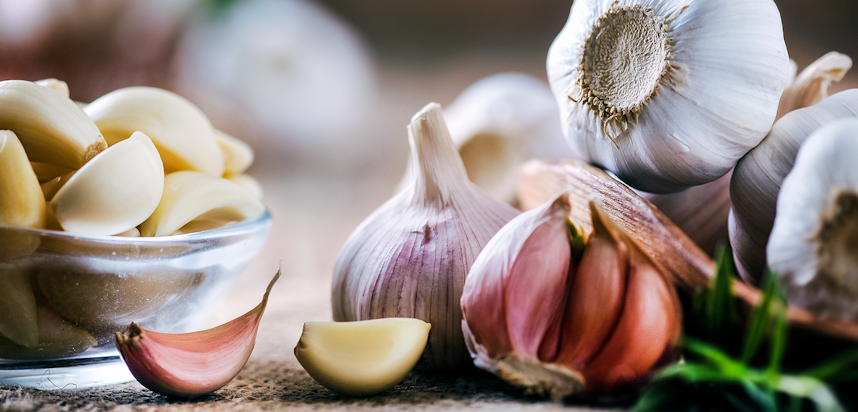
Garlic has been used as a natural cold remedy (as well as to treat wounds and infections) for centuries, and in many ways, it does work. For starters it contains allicin compounds, which fight bacteria and viral infections.
And in addition to sulphur - which helps the body repair damaged cells and absorb zinc - garlic is thought to have some of the antimicrobial properties found in medicines used to treat infectious diseases.
Ginger
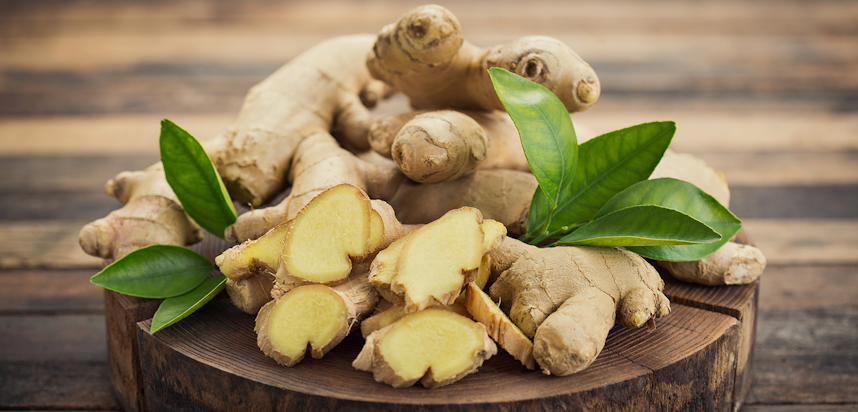
As a good anti-inflammatory, ginger is another trusted throat-soother - helping relieve the scratchy, sore throats associated with colds. It also contains bioactive nutrients that help fight infections, particularly in the nose, mouth and throat.
Whilst not usually a cold symptom, ginger is also a natural remedy for upset stomachs and nausea.
Fresh ginger root is the most powerful type of ginger, and it can be either sliced or grated for best flavour and effect.
Almonds
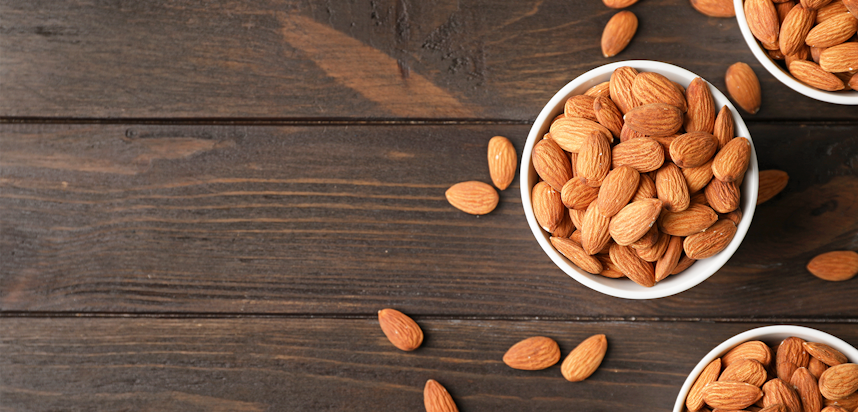
An all-round nutritional hero, almonds are also a great food for those battling a cold.
Rich in immune-system boosting, bacteria-fighting vitamin E, as well as magnesium, which is needed by all the body's organs for healthy functioning.
The skin of raw almonds also contain polyphenols, compounds which stave off viruses and have even been described as a ‘natural vaccine’.
Allergy alert!
Almonds are a (Tree) Nut, one of the 14 major food allergens and are not suitable for those who have a nut allergy or intolerance.
What is the worst food to eat when you have a cold?
As well as the obvious - sugary desserts and sweets, soft drinks and processed foods that add little nutritional value, and dehydrating alcohol, those suffering from a cold should avoid crunchy cereals and sharp crisps (which will be painful to sore throats) and dairy products, as they have a thickening effect on phlegm and mucus, which makes congestion worse. The one exception to this is yoghurt, which can be beneficial as it has probiotic properties.
Liqorice tea
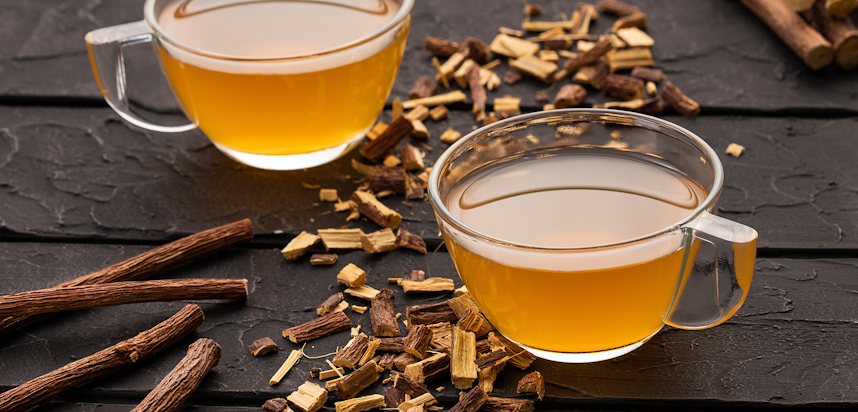
A traditional cough remedy (and many old brands of cough drops or lozenge contain liquorice or are liquorice-flavoured), liquorice tea is also used to soothe sore throats and help reduce phlegm and clear congested airways.
Liquorice root has long been used in China as a herbal antidote to colds (as well as other ailments such as heartburn) - it has antimicrobial properties that both fight off cold symptoms and help the body recover once the cold virus is gone.
Chilli peppers
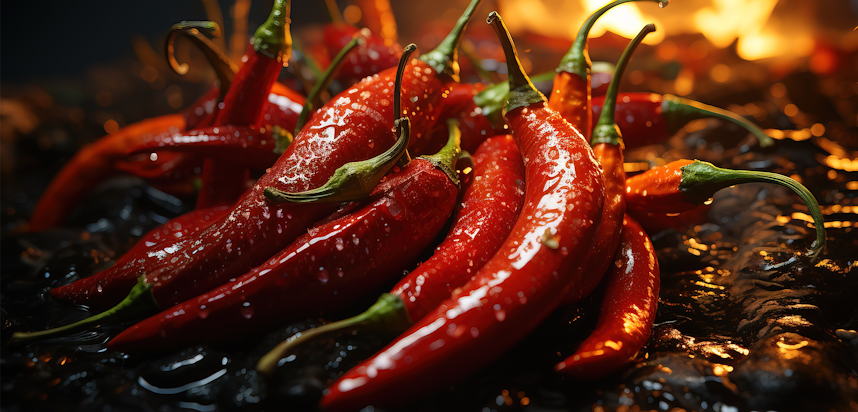
It’s common knowledge that spicy foods can help clear your sinuses, but why? In short, it’s because spicy foods like chilli peppers are rich in capsaicin, a chemical that disturbs mucus membranes and causes a burning sensation. This softens and thins out mucus, making it easier to expel from the body (through a runny nose), and relieving the congestion that comes with a cold.
Additionally, capsaicin is a natural pain reliever, as it has a desensitising effect.
What’s the difference between cold and flu?
Colds and flu have several differences. Firstly, colds can be intense but they are not thought to be as debilitating as the flu. And whilst the two share some symptoms, colds are more likely to involve congested ears and noses and coughing whereas those with flu experience fever and aches and pains.
Colds generally develop gradually and flu comes over much more suddenly, though it is possible to have both flu and cold at the same time (sometimes causing people to believe that their cold has developed into flu).
